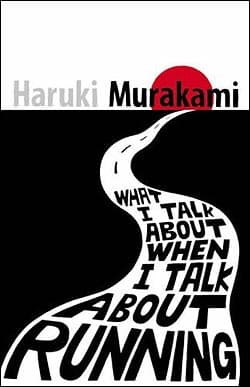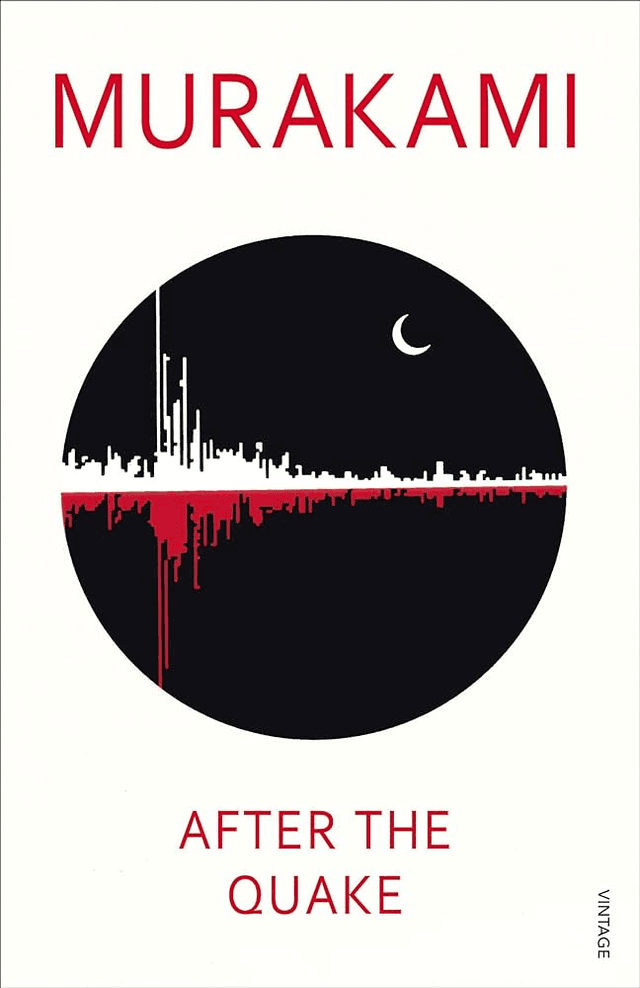What I Talk About When I Talk About Running vs. After the Quake
What I Talk About When I Talk About Running
by Haruki Murakami. In this book, Murakami shares his thoughts and experiences about running and writing. He talks about how he started running in his 30s and how it became a big part of his life. Running helps him think and gives him ideas for his writing. The book is like a diary where Murakami writes about his runs, the races he joins, and how running affects his life and work. He also talks about getting older and how that changes his running. The book is not just for runners but for anyone who enjoys a good story about trying hard and not giving up.
After the Quake
An electronics salesman who has been deserted by his wife agrees to deliver an enigmatic package— and is rewarded with a glimpse of his true nature. A man who views himself as the son of God pursues a stranger who may be his human father. A mild-mannered collection agent receives a visit from a giant talking frog who enlists his help in saving Tokyo from destruction. The six stories in this collection come from the deep and mysterious place where the human meets the inhuman—and are further proof that Murakami is one of the most visionary writers at work today.

Top Reviews
@misty-rose-bison-45
I read this book when I first started running long distance. I was living in Chiang Mai and I'd go this huge park a couple of times a week and just run loops around the lake. At the end of my run I'd grab a milk tea and a banana bread from a local coffee shop and just read a few pages. Great memories of many chill evenings, running and reading about running.
| Item | Votes | Upvote |
|---|---|---|
| Easy read | 1 | |
| Motivating | 1 | |
| Peaceful | 1 |
| Item | Votes | Upvote |
|---|---|---|
| No cons yet, would you like to add one? | ||
| Item | Votes | Upvote |
|---|---|---|
| No pros yet, would you like to add one? | ||
| Item | Votes | Upvote |
|---|---|---|
| No cons yet, would you like to add one? | ||
Frequently Asked Questions
'What I Talk About When I Talk About Running' is focused on personal reflection, exploring themes of running, aging, and the creative process. It offers an intimate look into Haruki Murakami's life and thoughts, making it ideal for readers who enjoy memoirs and personal essays. In contrast, 'After the Quake' is a collection of fictional stories that delve into surreal and philosophical themes, which may appeal more to readers interested in imaginative narratives rather than personal reflection. Therefore, if you prefer introspective writing, 'What I Talk About When I Talk About Running' would be the better choice.
'What I Talk About When I Talk About Running' is written in a conversational and accessible style, making it an engaging read for those interested in Murakami's personal experiences and thoughts. The narrative flows like a diary, which can resonate well with readers looking for a relatable and motivating story. On the other hand, 'After the Quake' features a collection of stories that may require more effort to engage with due to their surreal and complex themes. Thus, for readers seeking a straightforward and engaging narrative, 'What I Talk About When I Talk About Running' is likely the better option.
'What I Talk About When I Talk About Running' is explicitly motivational, as it discusses the author's journey with running and how it influences his life and creativity. Readers often find inspiration in Murakami's reflections on perseverance and personal growth. In contrast, 'After the Quake' does not focus on motivation but rather explores deeper philosophical questions through its fictional narratives. Therefore, if motivation is what you're seeking, 'What I Talk About When I Talk About Running' is the more suitable choice.
'What I Talk About When I Talk About Running' is a book by Haruki Murakami where he shares his thoughts and experiences about running and writing. The book details how Murakami started running in his 30s and how it became a significant part of his life. It serves as a diary where he writes about his runs, the races he participates in, and the impact of running on his life and work. The book also touches on themes of aging and perseverance, making it appealing not just to runners but to anyone who enjoys stories about determination and personal growth.
Pros of 'What I Talk About When I Talk About Running' include it being an easy read, motivating, and peaceful. There are no reported cons at this time.
Haruki Murakami is a renowned Japanese author known for his works of fiction and non-fiction. He has written several bestsellers, including 'Norwegian Wood,' 'Kafka on the Shore,' and '1Q84.' His writing often blends elements of magical realism, surrealism, and existentialism, making his works unique and widely acclaimed. In addition to being an accomplished writer, Murakami is also an avid runner, which he discusses in his memoir 'What I Talk About When I Talk About Running.'
'After the Quake' is a collection of six short stories by Haruki Murakami. The stories revolve around characters dealing with the aftermath of the Kobe earthquake. An electronics salesman who has been deserted by his wife agrees to deliver an enigmatic package; a man who believes he is the son of God pursues a stranger who may be his human father; and a mild-mannered collection agent receives a visit from a giant talking frog who enlists his help in saving Tokyo from destruction. These stories explore the deep and mysterious intersection of the human and the inhuman.
'After the Quake' is authored by Haruki Murakami, a renowned Japanese writer known for his unique blend of surrealism, magical realism, and contemporary themes. He is one of the most visionary writers at work today.
The main themes in 'After the Quake' include human vulnerability, the impact of natural disasters, existentialism, and the intersection between the human and the inhuman. Murakami explores how these events shape the characters' lives and their perceptions of reality.
'After the Quake' belongs to the genres of literary fiction and magical realism. The stories often contain surreal and fantastical elements that blur the lines between reality and imagination.




















